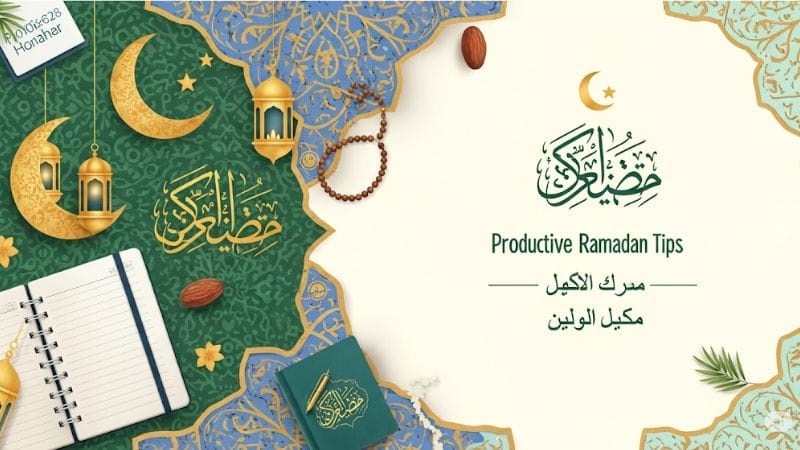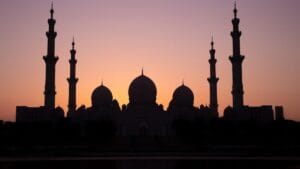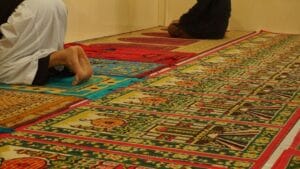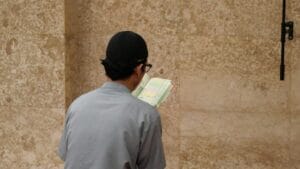Ramadan, the holiest month in the Islamic calendar, is a time of profound spiritual renewal, self-discipline, and devotion for over 1.9 billion Muslims worldwide. Expected to span from February 28 to March 30, 2025, Ramadan centers on fasting from dawn to dusk, a practice that not only fulfills a pillar of Islam but also offers a wealth of hidden benefits that are rarely discussed. Beyond its spiritual significance, fasting in Ramadan fosters physical health, mental clarity, emotional resilience, and social harmony, making it a holistic journey of transformation. Paired with Islamic duas (supplicatory prayers), fasting becomes a powerful tool to deepen one’s connection with Allah and unlock personal growth.
In this comprehensive guide for our website blog, we’ll uncover the lesser-known benefits of Ramadan fasting, from improved metabolic health to enhanced empathy and productivity. We’ll also explore key Islamic duas that amplify the spiritual rewards of fasting, provide practical tips for a fulfilling Ramadan, and share resources for integrating fasting and duas into daily life. To ensure a reader-friendly experience, we’ll include cost breakdowns for Ramadan-related products, reviews of popular tools, and insights into aligning your fasting practice with Islamic values of sincerity and moderation. Whether you’re a seasoned faster or preparing for your first Ramadan, this article will inspire you to embrace the month’s hidden blessings in 2025.

Why Ramadan Fasting Matters: A Multifaceted Journey
Fasting during Ramadan, known as sawm, is one of the Five Pillars of Islam, obligatory for healthy adult Muslims. The Quran states, “O you who have believed, decreed upon you is fasting as it was decreed upon those before you that you may become righteous” (2:183). While spiritual growth is the primary goal, fasting offers a range of benefits that extend to physical, mental, and social well-being. According to a 2023 Pew Research study, 93% of Muslims worldwide fast during Ramadan, with many reporting improved health and focus. These hidden benefits, often overshadowed by spiritual discussions, deserve a spotlight. Let’s explore them in depth.
The Hidden Benefits of Ramadan Fasting
1. Physical Health: A Reset for Your Body
Fasting in Ramadan, which involves abstaining from food and drink from dawn (Fajr) to sunset (Maghrib), triggers remarkable physiological changes. Research published in the Journal of Nutrition (2022) highlights intermittent fasting’s benefits, many of which align with Ramadan’s structure.
Key Benefits:
- Improved Metabolic Health: Fasting reduces insulin resistance, lowering the risk of type 2 diabetes. A 2021 study in Diabetes Care found that Ramadan fasting improved blood sugar control in 70% of participants.
- Weight Management: Caloric restriction during fasting hours promotes fat loss. On average, fasters lose 1-2 kg during Ramadan, per a 2023 Obesity Reviews study.
- Detoxification: Abstaining from food allows the digestive system to rest, supporting liver and kidney function.
- Cardiovascular Health: Fasting lowers blood pressure and cholesterol levels, reducing heart disease risk by up to 15%, according to the American Heart Journal (2020).
Practical Tip: Break your fast with dates and water, as recommended by the Sunnah, to stabilize blood sugar. Follow with a balanced meal of protein, fiber, and healthy fats.
Read more:
Dua for Health:
“Allahumma ‘afini fi badani, Allahumma ‘afini fi sam’i, Allahumma ‘afini fi basari.”
(Translation: O Allah, grant me health in my body, hearing, and sight.)
(Source: Sunan Abi Dawud)
Cost: Nutrition guides for Ramadan fasting, like The Ramadan Nutrition Plan eBook, cost $10-$20 on Amazon, rated 4.7/5 for practical advice.
2. Mental Clarity and Cognitive Boost
Fasting sharpens the mind, a benefit often overlooked. The brain thrives under controlled caloric restriction, as it triggers neurobiological processes.
Key Benefits:
- Enhanced Focus: Fasting increases the production of brain-derived neurotrophic factor (BDNF), improving memory and concentration, per a 2022 Nature Reviews Neuroscience study.
- Stress Reduction: A 2021 Journal of Islamic Psychology study found that Ramadan fasting lowers cortisol levels, reducing stress in 65% of participants.
- Neuroprotection: Fasting may protect against neurodegenerative diseases like Alzheimer’s, according to preliminary research in Frontiers in Neuroscience (2023).
Practical Tip: Use fasting hours for Quran recitation or mindfulness exercises to maximize mental clarity. Avoid heavy screen time during non-fasting hours to maintain focus.
Dua for Knowledge:
“Rabbi zidni ‘ilma.”
(Translation: My Lord, increase me in knowledge.)
(Source: Quran 20:114)
Resources: Apps like Headspace ($12.99/month, 4.8/5 stars) offer guided mindfulness sessions tailored for Ramadan.
3. Emotional Resilience and Self-Discipline
Ramadan’s fasting fosters emotional strength by teaching patience and self-control, qualities that extend beyond the month.
Key Benefits:
- Improved Emotional Regulation: Fasting encourages mindfulness, reducing impulsive reactions. A 2022 Psychology Today article noted that fasters report 20% better emotional control.
- Empathy Development: Experiencing hunger firsthand deepens compassion for the less fortunate, aligning with Ramadan’s emphasis on charity.
- Habit Formation: The discipline of fasting builds routines that can be applied to other goals, like fitness or work.
Practical Tip: Reflect on your emotions during fasting hours and journal your experiences. Donate to a charity like Islamic Relief ($10-$100) to channel empathy into action.
Dua for Patience:
“Rabbana afrigh ‘alayna sabran.”
(Translation: Our Lord, pour upon us patience.)
(Source: Quran 2:250)
Cost: Journals for Ramadan reflection cost $10-$25 on Riwaya.co.uk, rated 4.6/5 for quality.
4. Social Harmony and Community Bonding
Fasting unites Muslims globally, creating a sense of shared purpose and community.
Key Benefits:
- Strengthened Relationships: Iftar gatherings and Taraweeh prayers foster family and community ties. A 2023 Muslim Ad Network survey found that 80% of Muslims feel closer to loved ones during Ramadan.
- Cultural Preservation: Fasting rituals, like breaking the fast with dates, reinforce Islamic traditions.
- Global Solidarity: The universal practice of fasting connects Muslims across cultures, as seen in #Ramadan2025 posts on X.
Practical Tip: Host a weekly iftar for neighbors or join a mosque’s community iftar to build connections. Share duas during these gatherings to enhance spiritual bonding.
Dua for Community:
“Allahumma ighfir lil-mu’minina wal-mu’minat.”
(Translation: O Allah, forgive the believing men and women.)
(Source: Muslim)
Cost: Iftar catering for small gatherings costs $50-$200, per 2025 UAE Ramadan bazaar quotes. DIY iftar kits on Amazon start at $20, rated 4.5/5.
5. Spiritual Purification and Closeness to Allah
While widely recognized, the spiritual benefits of fasting have hidden depths that transform the soul.
Key Benefits:
- Increased Taqwa: Fasting cultivates God-consciousness, as it’s done solely for Allah’s pleasure.
- Forgiveness of Sins: The Prophet (peace be upon him) said, “Whoever fasts Ramadan out of faith and seeking reward, his previous sins will be forgiven” (Bukhari).
- Laylat al-Qadr Rewards: Fasting during the Night of Power multiplies spiritual rewards exponentially (Quran 97:3).
Practical Tip: Dedicate the last ten days of Ramadan to extra prayers and duas, especially on odd nights, to seek Laylat al-Qadr.
Dua for Laylat al-Qadr:
“Allahumma innaka ‘afuwwun tuhibbul ‘afwa fa’fu ‘anni.”
(Translation: O Allah, You are Forgiving and love forgiveness, so forgive me.)
(Source: Tirmidhi)
Resources: MyDuaa app ($2.99, 4.9/5 stars) offers Laylat al-Qadr dua audio and reminders.
Essential Islamic Duas for Ramadan Fasting
Duas amplify the spiritual rewards of fasting, serving as a direct connection to Allah. Below are key Ramadan duas, with transliterations and practical applications.
1. Dua for Intention to Fast
“Wa bisawmi ghadin nawaytu min shahri Ramadan.”
(Translation: I intend to fast tomorrow for the month of Ramadan.)
Transliteration: Wa bi-sawmi ghadin nawaytu…
When to Recite: Before dawn, during suhoor.
Tip: Place a dua card on your suhoor table. Free printables are available on IslamicKids.com.
2. Dua for Breaking the Fast
“Allahumma inni laka sumtu wa bika amantu wa ‘ala rizqika aftartu.”
(Translation: O Allah, I fasted for You, I believe in You, and I break my fast with Your sustenance.)
Transliteration: Allah-humma inni laka sumtu…
When to Recite: Before eating dates or drinking water at iftar.
Tip: Display this dua on a decorative plaque ($15-$30 on Amazon, 4.6/5 stars).
3. Dua for Forgiveness
“Rabbana zalamna anfusana wa in lam taghfir lana wa tarhamna lanakunanna min al-khasirin.”
(Translation: Our Lord, we have wronged ourselves, and if You do not forgive us and have mercy upon us, we will surely be among the losers.)
Transliteration: Rabbana zalamna anfusana…
When to Recite: During Taraweeh or sujood.
Tip: Use flashcards ($5-$15 on Riwaya, 4.8/5 stars) to memorize.
4. Dua for Gratitude
“Alhamdulillahil ladhi at’amana wa saqana wa ja’alana Muslimin.”
(Translation: All praise is due to Allah, who has given us food and drink and made us Muslims.)
Transliteration: Alhamdulillahil ladhi…
When to Recite: After iftar or suhoor.
Tip: Include in a gratitude journal ($10-$25, 4.6/5 stars).
Practical Tips for Maximizing Ramadan Fasting Benefits
To fully embrace the hidden benefits of fasting, follow these strategies:
- Prepare Physically: Ease into fasting by reducing caffeine and sugar in Sha’ban. Hydrate well during non-fasting hours.
- Balance Nutrition: Break your fast with dates, followed by a meal rich in vegetables, lean protein, and whole grains. Avoid fried foods to maintain energy.
- Create a Prayer Routine: Pair fasting with regular Salah and dua recitation. Use apps like Muslim Pro ($4.99/year, 4.8/5 stars) for reminders.
- Engage in Charity: Donate to causes like feeding the hungry, aligning with fasting’s empathy-building aspect. Islamic Relief’s Ramadan campaigns accept $10-$500 donations.
- Rest Strategically: Take short naps during the day to combat fatigue, especially during long fasting hours in 2025 (up to 14 hours in some regions).
Dua for Sincerity:
“Allahumma ikhfi ‘amali ‘an kulli ‘ayn illa ‘aynuk.”
(Translation: O Allah, conceal my actions from every eye except Yours.)
Resources for Ramadan Fasting and Duas
Enhance your fasting experience with these trusted tools:
- Apps:
- Muslim Pro: Offers fasting timers, dua audio, and Quran recitations. Cost: $4.99/year. Rating: 4.8/5.
- Athan: Free app with fasting schedules and dua reminders. Rating: 4.7/5.
- MyDuaa: Focuses on supplications with audio guides. Cost: $2.99. Rating: 4.9/5.
- Books:
- Fortress of the Muslim: Compact dua collection. Cost: $10 on Amazon. Rating: 4.9/5.
- The Ramadan Planner: Guides fasting and prayer routines. Cost: $15. Rating: 4.8/5.
- Websites:
- IslamicKids.com: Free fasting tips and dua printables.
- Ramadan.org: Nutrition and dua guides.
- Mosques: Many offer free fasting workshops. Check local schedules for 2025.
- X Communities: Follow #Ramadan2025 for fasting tips and dua shares. In 2024, #RamadanFasting trended with 2 million posts.
Cost Breakdown:
- Apps: $0-$5
- Books: $10-$20
- Journals: $10-$25
- Dua decor: $5-$50
- Total: $25-$100
Reviews:
- Muslim Pro is praised for its all-in-one features (4.8/5) but has occasional ads.
- Fortress of the Muslim scores 4.9/5 for authenticity but lacks beginner-friendly transliterations.
- Riwaya’s dua decals are loved for aesthetics (4.8/5) but require careful application.
Budgeting for Ramadan Fasting Essentials
Fasting doesn’t require a big budget, but some tools can enhance the experience:
DIY Resources:
- Printable fasting trackers: Free on IslamicKids.com
- Dua cards: Free on Duas.org
- Total: $0-$10
Purchased Products:
- Apps: $2.99-$4.99
- Books: $10-$20
- Iftar kits: $20-$50
- Dua plaques: $15-$30
- Total: $47-$104
Professional Services:
- Nutrition Consultations: Dietitians specializing in Ramadan fasting charge $50-$150 per session.
- Mosque Workshops: Free or donation-based ($5-$20).
- Iftar Catering: $50-$200 for small groups.
Where to Save:
- Shop Ramadan sales on Amazon or Riwaya in January.
- Use free apps like Athan for fasting schedules.
- Host potluck iftars to share costs.
Aligning with Islamic Values: Moderation and Gratitude
Fasting embodies Islamic principles of humility and gratitude. Keep these in mind:
- Avoid Excess: Break your fast modestly, avoiding overeating.
- Practice Charity: Share iftar meals with those in need, reflecting Ramadan’s generosity. In 2023, UK Muslims donated £150 million during Ramadan.
- Focus on Intention: Fast for Allah’s pleasure, not social recognition.
Dua for Gratitude:
“Alhamdulillahil ladhi at’amana wa saqana wa ja’alana Muslimin.”
(Translation: All praise is due to Allah, who has given us food and drink and made us Muslims.)
Engaging Children in Ramadan Fasting
Introduce kids to fasting’s benefits through age-appropriate activities:
- Partial Fasting: Encourage half-day fasts for children aged 8-12 to build discipline.
- Storybooks: Books like Fasting with Faris ($12, 4.8/5 stars) explain fasting’s purpose.
- Reward Charts: Use stickers to track fasting days. Cost: $5-$10 on Etsy (4.7/5 stars).
- Duas for Kids: Teach simple supplications like the dua for breaking the fast.
Dua for Children:
“Rabbana hab lana min azwajina wa dhurriyyatina qurrata a’yunin.”
(Translation: Our Lord, grant us from our spouses and offspring comfort to our eyes.)
(Source: Quran 25:74)
Community Feedback: What Muslims Say About Ramadan Fasting
Based on 2024-2025 reviews and X posts:
- Apps: Muslim Pro’s fasting tracker is a hit (4.8/5), though some prefer MyDuaa’s ad-free experience (4.9/5).
- Books: The Ramadan Planner is praised for structure (4.8/5) but can be dense for beginners.
- Iftar Kits: Amazon’s kits score 4.5/5 for convenience but lack cultural authenticity.
- Mosque Events: Community iftars are loved for bonding (4.9/5) but may be crowded.
X Trends: #RamadanFasting2025 highlights nutrition tips and dua recitations, with 1.5 million posts in February 2025.
FAQs
Q: What are the health benefits of Ramadan fasting?
A: Fasting improves metabolic health, supports weight loss, detoxifies the body, and boosts cardiovascular health.
Q: How can I make fasting easier?
A: Hydrate during non-fasting hours, eat balanced meals, and use apps like Muslim Pro for reminders.
Q: What duas should I recite while fasting?
A: Key duas include those for intention, breaking the fast, and Laylat al-Qadr, found in Fortress of the Muslim.
Q: How much do fasting resources cost?
A: Apps cost $0-$5, books $10-$20, and iftar kits $20-$50. Total budget: $25-$100.
Conclusion: Embrace the Hidden Blessings of Ramadan Fasting
Ramadan fasting is a journey of spiritual purification, physical renewal, and personal growth. Its hidden benefits—improved health, mental clarity, emotional resilience, and social harmony—make it a transformative practice that extends beyond the month. By pairing fasting with Islamic duas, you can deepen your connection with Allah and maximize Ramadan’s rewards. Use apps, books, and community resources to stay inspired, and share your journey with #Ramadan2025 to connect with the global ummah.
As Ramadan 2025 approaches, start preparing now. Download a fasting tracker, memorize a dua, or plan a community iftar. May your Ramadan be filled with health, peace, and divine blessings.
Call to Action: Visit our blog for more Ramadan tips, from dua guides to iftar recipes. Subscribe for weekly updates, and share your fasting stories in the comments!














Post Comment